If you’re looking for the best material to use in gardening, one of your top considerations is likely between wood chips and mulch. Both can help control weeds and keep moisture in the soil – however, there are key differences that could make one choice a better fit than the other. In this blog post, we’ll provide an overview of how choosing either wood chips or mulch can impact garden health and maintenance, effectiveness in weed suppression, cost efficiency, ease of installation—and ultimately which will be better suited for growing a healthy garden!
Wood Chips vs. Mulch: What is Mulch?
Mulch is an essential material for any garden, and it can provide significant benefits for both the soil and plants. It is a layer of organic or inorganic material spread on top of soil that can conserve moisture, suppress weed growth, and improve the soil’s fertility. Organic mulch includes materials such as leaves, straw, wood chips, and bark, while inorganic mulch includes materials like river rocks, gravel, and crushed shells. [1] It decomposes over time, providing nutrients to the plants and creating a healthy environment for microorganisms that break it down.
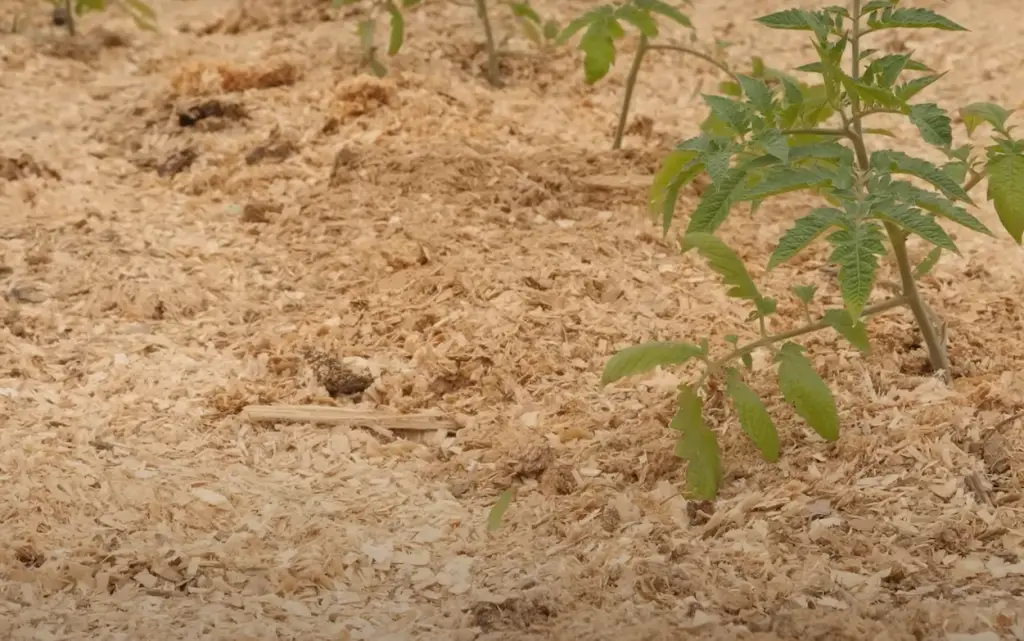
Applying mulch is easy and cost-effective, making it an excellent addition to any garden. By using mulch, you can cut down on watering and weeding your garden and enhance the soil’s health, creating a more vibrant and thriving garden.
Types Of Organic Mulch
Organic mulch is the most popular choice for gardeners, and there are a few different types to choose from.
- Wood chips: Wood chips are an excellent resource for your garden, as they hold moisture and break down over time, providing nutrients to plants. They also suppress weed growth and create a natural look. However, wood chips can be hard to spread evenly, so you’ll need to use a rake or shovel to ensure even coverage.
- Bark: Bark mulches include shredded bark from trees such as fir or pine. These materials are fairly easy to apply and provide great insulation for soil in colder climates.
- Straw: Straw is a good source of organic matter but generally doesn’t last as long as wood chips or bark. It’s perfect for short-term protection and can be used to mulch flower beds, vegetable gardens, and other areas where you need quick coverage.
- Cocoa hulls: Cocoa hulls are a unique material and add a pleasant smell to your garden. They’re also fairly lightweight, making them easy to spread and work with.
Benefits of Organic Mulch
Organic mulch has many benefits for your garden, such as:
- Reducing the need to water plants by helping retain moisture in the soil;
- Suppressing weed growth and reducing the amount of weeding necessary;
- Improving soil structure and fertility by adding organic matter as it breaks down;
- Helping protect plants from extreme temperature fluctuations;
- Enhancing the beauty of gardens with its natural look. Organic mulches also add nutrients to the soil as they break down. This process can take several months or years depending on the type of material used. As organic mulch decomposes, it releases nitrogen into the soil, providing an important nutrient that helps fuel plant growth. [2]
Disadvantages of Organic Mulch
In addition to the many benefits of organic mulch, there are also a few disadvantages. These include:
- Organic mulch can be expensive if you don’t already have access to it;
- May require more maintenance than inorganic mulches;
- Can attract animals such as rodents and slugs;
- It needs to be replaced every few years. While these drawbacks may make organic mulch less attractive than other options, its numerous advantages still make it a great choice for any garden.
Types Of Inorganic Mulch
Inorganic mulches are often used in areas where organic materials may not be suitable, such as driveways or pathways.
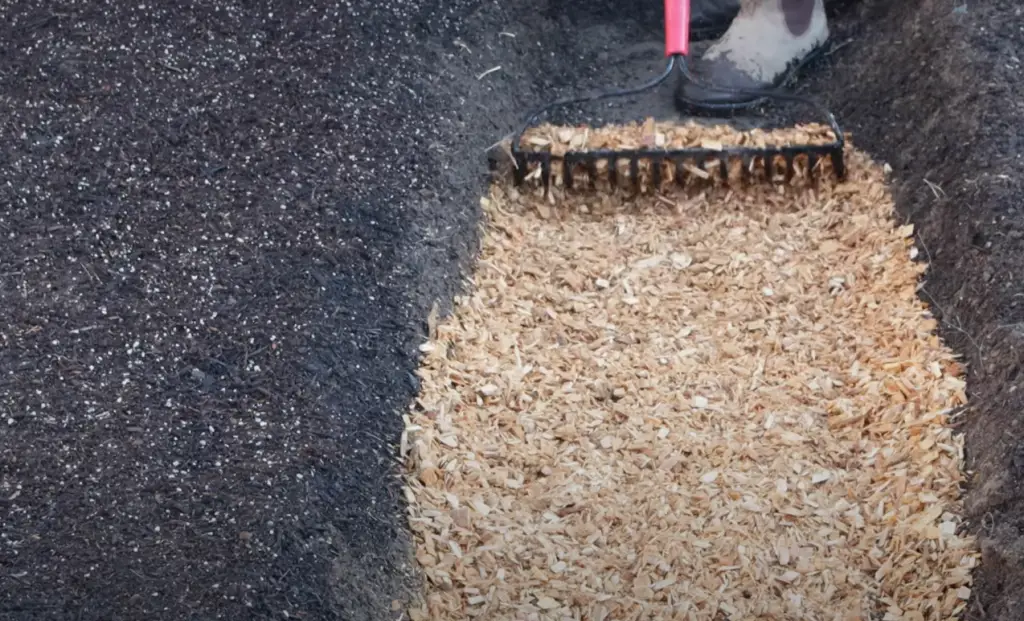
They can also provide a permanent solution for landscape beds and gardens that require little maintenance over time.
- River rocks: River rocks are an attractive option for gardeners looking for a more decorative look. They don’t break down like organic materials, so they won’t need to be replaced as often.
- Gravel: Gravel is a great choice for those looking for an affordable and low-maintenance material. It provides good drainage and doesn’t need to be replenished as frequently as other inorganic materials.
- Crushed shells: Crushed shells are a unique option with plenty of appeal, but they can be expensive and difficult to find in some areas. They offer good drainage and a classic look, but they won’t last as long as other materials.
- Black plastic: Black plastic is often used in vegetable gardens and other areas where organic mulches may not be suitable. It’s an inexpensive option, but it can be difficult to maintain over time. [3]
- Reflective metallic mulch: Reflective metallic mulches are great for controlling weed growth and reducing the need to water, but they can be expensive and may not last as long as other materials.
- Rubber mulch: Rubber mulch is becoming increasingly popular, as it’s long-lasting and easy to maintain. It’s also environmentally friendly, since it can be made from recycled tires.
Benefits of Inorganic Mulch
Inorganic mulches offer a few key advantages, such as:
- Low maintenance — inorganic materials don’t need to be replenished or replaced as often;
- Easy installation — inorganic materials are usually lighter and easier to spread than organic materials;
- Cost efficiency — inorganic mulches tend to be cheaper than organic options;
- Weed control — black plastic and metallic mulches are particularly effective at suppressing weed growth;
- Temperature control — inorganic materials can help maintain temperatures in the soil, which is important for new seedlings or transplants. Inorganic mulch can be a great choice for areas where organic materials may not be practical or suitable, but it’s important to remember that they won’t provide any nutrients to the soil as they break down. Ultimately, the best option will depend on your needs and budget.
Disadvantages of Inorganic Mulch
Inorganic mulches come with a few drawbacks, such as:
- Limited aesthetic appeal — inorganic materials may not be as visually appealing as organic materials;
- Lack of soil enrichment — inorganic materials don’t add any nutrients to the soil and are incapable of breaking down over time;
- Potential for heat buildup — black plastic and metallic mulches can cause the soil to become excessively warm in hot climates or sunny locations;
- Possibility of blowing away — in windy conditions, some inorganic materials like gravel or wood chips can blow away if not secured properly. Additionally, rubber mulch is made from recycled tires, which some people may find objectionable. Ultimately, you should consider all of these factors before deciding which type of mulch is right for your garden.
The Main Differences Between Wood Chips and Mulch
Wood chips and mulch are both materials used to protect soil from erosion, reduce water loss, improve the appearance of a garden or landscape, and provide beneficial nutrients to plants. While the two materials serve similar purposes, there are some key differences between them.
The main difference between wood chips and mulch is their composition. Wood chips are typically made from hardwood trees such as oak or maple while mulch can be derived from a variety of sources including bark, leaves, grass clippings or composted manure. The type of material will affect how long it lasts in the garden before needing to be replaced.
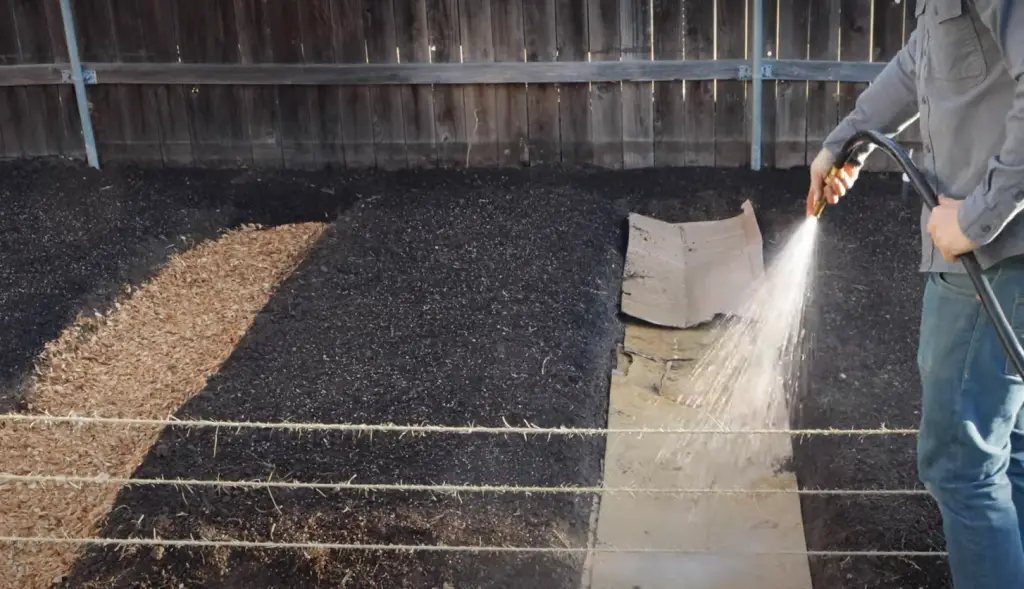
Wood chips tend to break down more slowly than mulch, making them better suited for pathways and gardens where less maintenance is needed. Mulch, on the other hand, breaks down faster due to its smaller particle size and provides nutrients more quickly into the soil. This makes it ideal for flower beds and vegetable gardens that require frequent fertilizing.
Another difference between wood chips and mulch is their cost.
However, wood chips can last longer which may make up for the additional cost over time.Finally, another point of distinction between wood chips and mulch is their appearance. Wood chips have a more rugged, natural look that can be beneficial in certain situations while mulch has a tidier, more manicured appearance.
Wood Chips vs. Mulch: How are They Made?
Wood chips are made by running tree branches and trunks through a chipper, which breaks them down into small chips. [4]
Both wood chips and mulch must then be spread evenly over the area they are intended to cover.The composition of wood chips and mulch affects their durability in the garden or landscape. Wood chips tend to last longer since their larger particles take more time to break down whereas mulch decomposes faster due to its smaller size and higher nutrient content. This makes it better suited for areas that need frequent fertilizing such as flower beds or vegetable gardens. The cost of the two materials can also vary depending on their availability.
Wood Chips vs. Mulch: The Texture
When it comes to the debate between wood chips and mulch, texture is one of the factors to consider. Wood chips are typically larger and chunkier, while mulch is finer and more uniform in texture. Some gardeners may prefer the look of wood chips, as they can create a natural, rustic feel in landscaping.
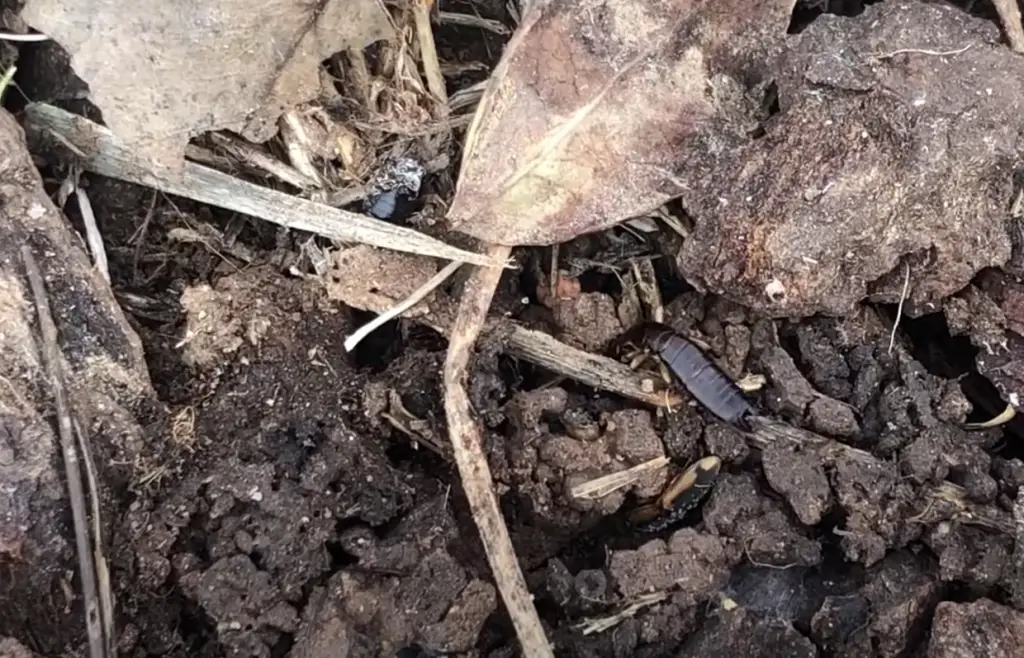
Mulch, on the other hand, can be easier to spread evenly and can provide better moisture retention for plants. It really comes down to personal preference and the specific gardening needs of each individual. Ultimately, the texture of wood chips and mulch can impact both the aesthetic appeal and practical functionality of your garden.
Wood Chips vs. Mulch: Advantages & Disadvantages
When considering the best option for landscaping, it’s important to weigh the advantages and disadvantages between wood chips and mulch. Wood chips are an affordable and effective option for a garden or backyard, providing a natural and rustic look. However, they can also attract pests and require more maintenance. On the other hand, mulch offers better moisture retention and weed control, but can be more expensive and may require more frequent replacement. Ultimately, the decision between wood chips and mulch will depend on a variety of factors, including cost, aesthetic preference, and the specific needs of the space. By carefully considering the pros and cons of each option, you can make a well-informed choice that will help you achieve your landscaping goals.
What Is Mulch Best For?
Mulch is a versatile gardening tool that is essential for any home gardener looking to facilitate optimal plant growth. While mulch is best known for its ability to regulate soil temperature and moisture with incredible effectiveness, it can also act as an incredible insulator, keeping plant roots cool during the hot summer months and warm during the frigid winter season. Additionally, the layer of mulch on top of garden soil helps to deter soil-borne diseases and pests from damaging plants, providing a natural defense system that can prevent costly investments in harmful pesticides. Mulch is also great for improving soil structure, allowing water and fertilizer to penetrate deeply into the soil while reducing soil compaction overall. Overall, mulch is an excellent gardening tool that should be utilized by every home gardener to increase yields, improve plant health, and maximize garden potential.
What Are Wood Chips Best For?
Wood chips are an incredibly versatile material that can be put to many uses. One of their primary applications is as a mulch that can help to keep soil moist and cool, suppress weed growth, and enrich the soil as it decomposes. Wood chips can also be used as a bedding material for livestock, especially for animals like chickens or pigs. Their absorbent nature can help to control moisture and odors, while providing a comfortable surface for the animals to walk on. [6] In addition, wood chips can be an excellent source of fuel for wood-burning stoves or boilers, offering an eco-friendly alternative to fossil fuels.
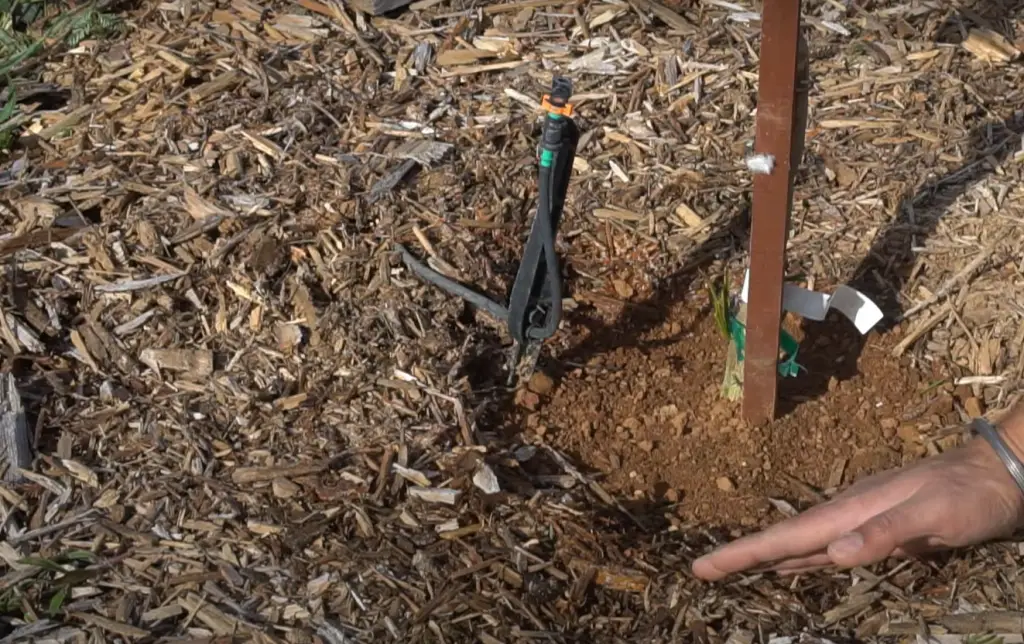
Finally, wood chips can even be used as a decorative element in landscaping, adding a natural touch to gardens, pathways, and other outdoor spaces.
FAQ
Are there Various Types of Wood Mulch?
Yes, there are a variety of wood chips available to use as mulch. The type you choose will depend on your needs and the desired look. Common types of wood chips used for mulching include pine bark, cedar chips, hardwood bark, cypress mulch, and more.
Is It Possible To Mix Wood Chips With Soil for Compost?
Yes, it is possible to mix wood chips with soil for composting. This can be a great way to add organic matter to the soil and create a nutrient-rich environment. However, keep in mind that larger chunks of wood may take longer to break down and should be avoided. It’s best to use smaller pieces of wood chips or sawdust when mixing them with soil for composting.
Should I Put Wood Chips or Mulch Around Trees?
Yes, it is beneficial to put wood chips or mulch around trees. The mulch can help keep weeds away and regulate soil temperatures, while also providing essential nutrients for the tree’s roots. However, be sure to provide enough space between the tree trunk and the mulch so that there is adequate airflow. Too much mulch near a tree trunk can cause damage by trapping moisture and encouraging decay.
Which is the Main Disadvantage of Mulching?
One of the main disadvantages of mulching is that it can cause nitrogen deficiency in soil. As the wood chips decompose, they will use nitrogen from the soil for fuel and thus reduce its availability to plants. To prevent this issue, you should mix organic fertilizers with your wood chips before applying them as a mulch. This will help keep the nitrogen levels in check and ensure that plants are getting what they need for healthy growth.
How Long Should Wood Chips Sit Before Putting It in the Garden?
It is best to let the wood chips sit for at least a month before putting them in the garden. This will allow the chips to break down and become softer, which makes them easier to spread around. It will also give beneficial microorganisms time to populate the chips, which can help enrich soil as they decompose. Waiting this amount of time also helps reduce any potential weed problems from dormant weed seeds that may be present in the wood chips when purchased.
Why are My Plants Dying After Mulching?
If your plants are beginning to die after adding wood chips as a mulch, it could be due to nitrogen deficiency. As the wood chips decompose, they will use up the available nitrogen in the soil and cause it to become depleted. To help prevent this issue, mix some organic fertilizers with the wood chips before applying them as a mulch. This will ensure that your plants have access to all of the necessary nutrients for healthy growth.
Why Is Organic Mulch Good For My Garden?
Organic mulch is beneficial for your garden as it helps regulate the soil temperature, reduce weed growth, and add organic matter to the soil. By keeping the soil cool in summer and warm in winter, organic mulches help keep plants healthy and thriving all year round.
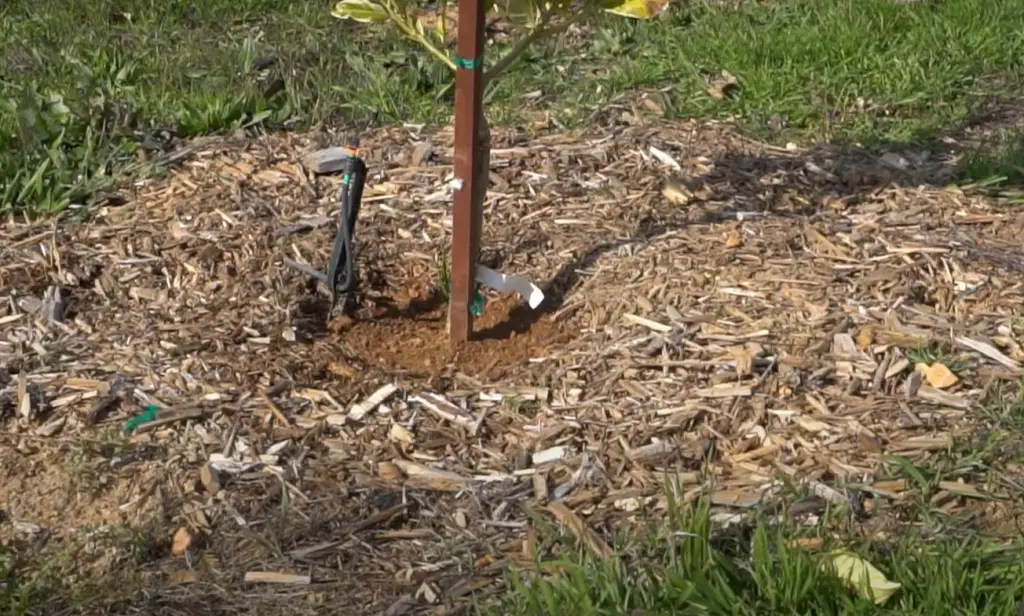
In addition, they can act as a slow-release fertilizer that will provide essential nutrients over time. Finally, organic mulches like wood chips are biodegradable and eco-friendly, making them an excellent choice for any garden.
If It Breaks Down, Does That Mean I Need To Replace Wood Mulch In My Yard Every Year?
No, it is not necessary to replace your wood mulch every year. Wood chips will break down over time, but this process can take several years depending on the type of wood used and environmental conditions. When the wood chips do become too broken down, you can simply add a new layer of mulch on top of the existing one without needing to completely remove and replace all the old material. This way, you can keep topping up your mulch each year to maintain its benefits without having to start from scratch.
What’s the Difference Between Compost And Wood Mulch?
Compost and wood mulch are two types of soil amendments that can help improve soil fertility and moisture retention. Compost is organic material such as food scraps, yard waste, and manure that has been decomposed by microorganisms into a nutritious soil amendment. Wood mulch is made up of finely ground wood chips or bark that helps to add nutrients to the soil while also helping to suppress weeds. The main difference between compost and wood mulch is their nutrient content. Compost contains high levels of nitrogen, potassium, phosphorus, calcium, and other essential micronutrients for plant health. Wood mulch does not contain any significant amount of macro-nutrients but instead provides protection from temperature extremes and prevents weed growth. Compost is best used as an amendment to existing soil systems, while wood mulch can be used as a top dressing for beds and pathways. Both compost and wood mulch can help improve soil fertility and moisture retention. In addition, both are excellent at promoting the growth of beneficial microorganisms in the soil. However, each should be applied differently depending on what your specific gardening needs are.
Useful Video: wood-chips-vs-mulch-for-garden
Conclusions
In conclusion, wood chips and mulch are both great materials to use in the garden. They offer a range of benefits, such as reducing weed growth, controlling water erosion, preventing soil compaction and keeping soil moist. Mulch is generally more aesthetically appealing and with its natural oils, it can help protect plants from pests and disease. Wood chips provide better drainage while enabling the soil to retain moisture for longer. It’s ideal for pathways and slopes due to its excellent anti-slip properties. Ultimately, choosing between wood chips and mulch requires you to assess your circumstances and pick the material which best meets your needs. After all, each material has a time and place where it will be best utilized – hopefully this blog post has provided you with enough information to make that decision!
References:
- https://www.thespruce.com/what-is-mulch-1402413
- https://calrecycle.ca.gov/organics/compostmulch/benefitsof/
- https://www.mdpi.com/2073-4395/12/8/1881
- https://stormwater.pca.state.mn.us/index.php?title=Wood_chips_and_applications_of_wood_chips_in_stormwater#:~:text=via%20Wikimedia%20Commons-,Wood%20chips%20are%20small%2D%20to%20medium%2Dsized%20pieces%20of%20wood,lignin%2C%20suberin%2C%20and%20tannins.
- https://en.wikipedia.org/wiki/Mulch#Organic_mulches
- https://woodyfuel.co.uk/wood-chip-alternative-livestock-bedding/





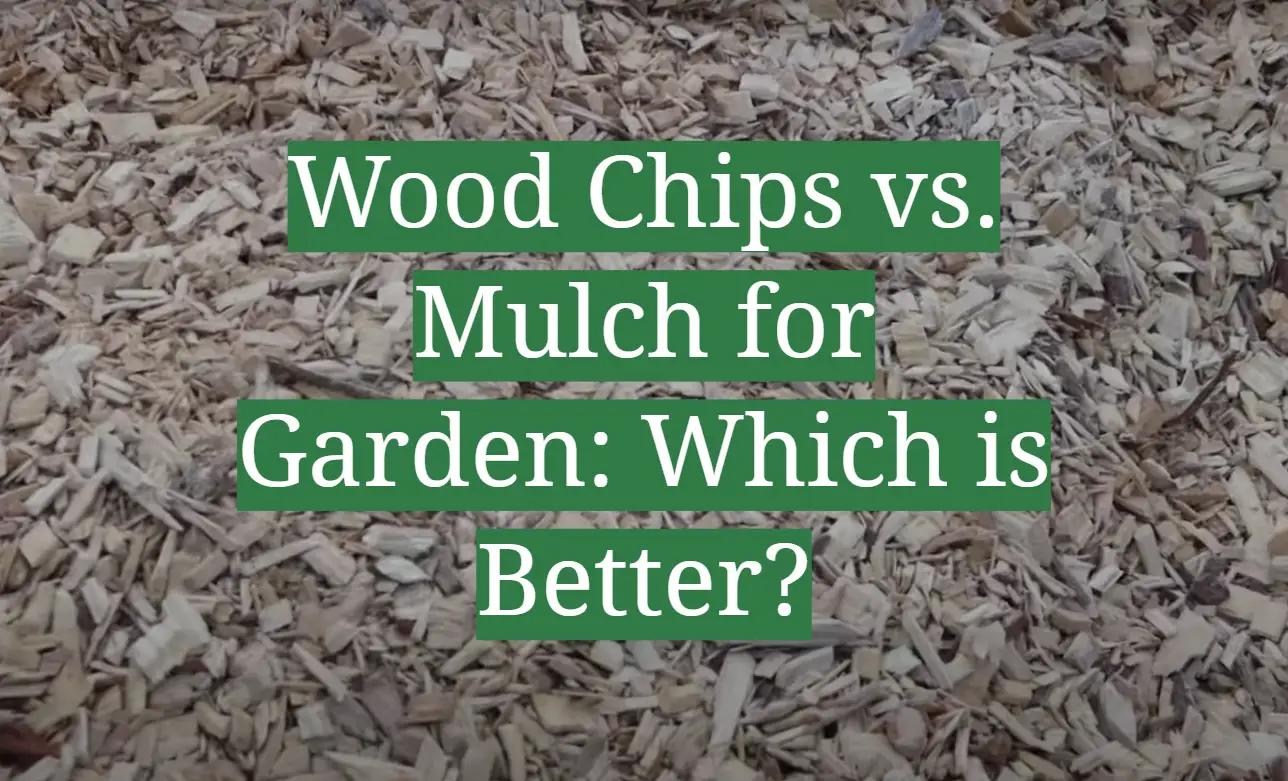
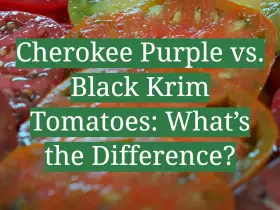
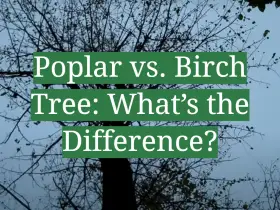
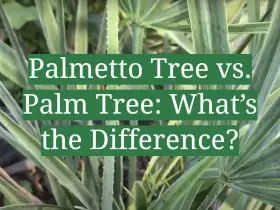
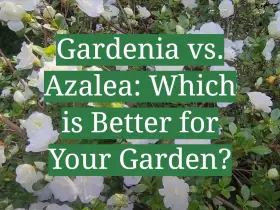
Leave a Reply
View Comments